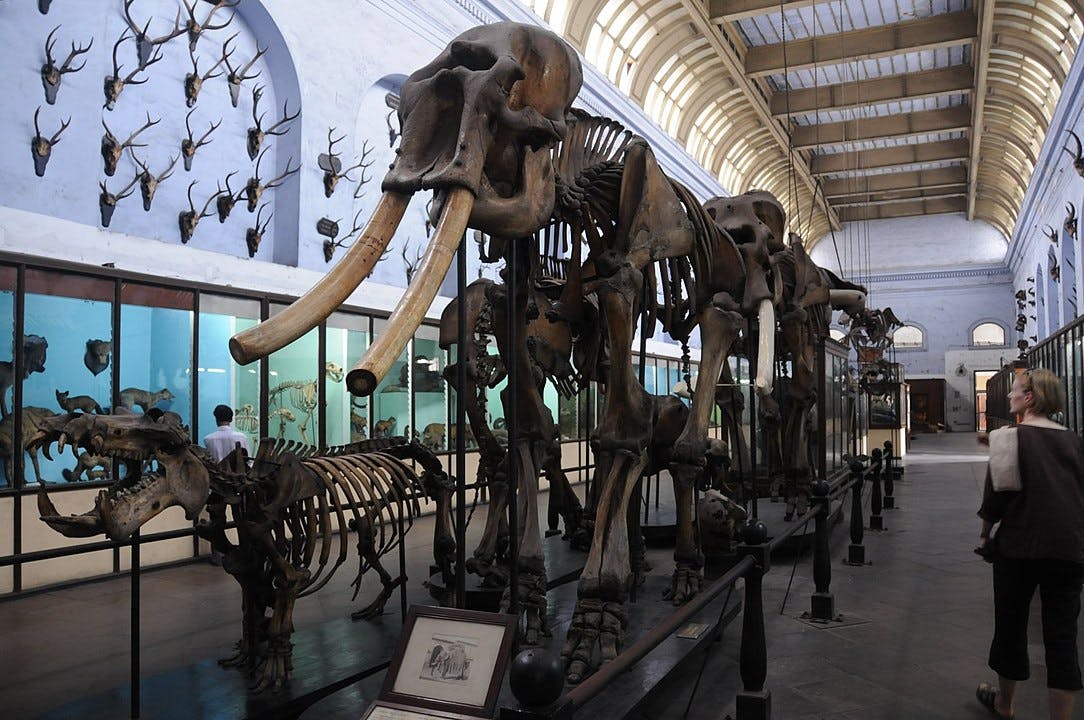For the last ten months, Dean Stevenson has descended deep into the bowels of Tasmania’s Museum of Old and New Art – Hobart’s subterranean gallery dedicated to the dark and the strange – to sit at a piano and write a piece of music from scratch. No one made Stevenson write 150 compositions; if he’s honest, he wanted to see how far he could push himself until he broke. “And it turned out that it was around 130,” he says mildly.
Under the constant gaze of curious art lovers, the 50-year-old composer has spent the last ten months writing a piece each day, stopping around 4 pm when musicians from Tasmania’s Symphony Orchestra arrive to perform whatever he has written, good or bad. When the performance ended, the composition was shelved, and Stevenson started again.
The 4 pm project is “without doubt the most ambitious” thing Stevenson has ever done, forcing him “to suck at something for a bit and own it”, as he wrote on his website at the beginning. When 4 pm was first announced last year, one Mona curator said, “I am looking forward to watching him suffer for his art while the clock counts down.”
So, has Stevenson suffered? “Oh my goodness, yes,” he says. “First, it would be three months; then it became six, then 10. And I could have stopped at any time, but I was either writing good music, or it didn’t feel unsafe – yet.”
In March, having been in Mona’s depths since July last year, “something went snap in my brain, and I had to be taken out of the museum,” he says. “I couldn’t come back for a couple of weeks. I’m still not quite back. It was traumatic. I was no longer in control of everything that was going on around me. It was something about being on display constantly; it took a very heavy toll.”

Dean Stevenson at his piano inside Mona: ‘Was I getting better at writing music? Or was the music improving, and I was suffering underneath it?’ Photograph: Mona
After being removed from Mona, Stevenson took a short break and went on tour before returning to the gallery to restart 4 pm for its siat ster festival, Dark Mofo. He knows he has been changed by the experiment but is left wondering exactly how; he suspects he has become a braver musician for it. “Was I getting better at writing music?” he asks. “Or was the music improving, and I was suffering underneath it?
“In the end, I think that’s what happened – the music was getting really good, and I wasn’t doing so well. But I did this to myself. I guess that’s the experiment.”
When he first suggested the idea behind 4 pm to Mona founder and friend David Walsh, “it was all going to be about me, look how awesome I am – it was far too egocentric, it would have been terrible.” The idea never went anywhere. In the 20 years between, Stevenson was toured as a drummer who composed and taught music. In his students, young and old, he came to observe a shared “crippling anxiety”; most were “so afraid to make something that wasn’t right”.
I can be the guy who hangs his dirty undies out every dayDean Stevenson
Finally, he understood: we all must suck at something for a bit and own it.
“We stigmatize mistakes so heavily – if you don’t get it right, it’s better to abandon it,” he says. “Only those with an absolute bloodthirsty passion will keep going because they can’t do it. And as a teacher, I encouraged people to go into the music industry, which I won’t do anymore because it’s terrible. Seeing where we sit in the food chain during Covid, I finally understood that unless it is all you can do, it’s a crucifix – and I’m not going to encourage anyone to hang themselves on it.”
Some days by 4 pm, he only had “terrible music, just drivel” to show for it. Some days, he left the gallery with great pride. But every day, after each performance, he would be approached by people who told the same story. “It’s curious, but at least once a day, they say, ‘I used to play an instrument, and I gave it up.’ You can hear the regret. I always give those people my time because that’s a precious moment.”
‘You rarely see people making stuff; you always see the result.’ Photograph: Mona
Surrounded by finished arArthe showed them something exotic: the process of creation. “You rarely see people making stuff; you always see the result. And the making is something you do at home in bleak despair, like practicing scales. It is just a terrible idea, not something fun. But I can be the guy who hangs his dirty undies out daily,” he says.
Visiting Stevenson in Mona, I spot a message typed on a page on one of the music stands: “ArArts never finished. It is only abandoned in an interesting place.” He considers this the greatest lesson and “the antithesis of the panic that we must get things right the first time”.
“If we’re going to make better stuff and be happier, sometimes we have just to go, ‘Oh, that’s enough,’” he says. “Being good enough is alright.”
For the two weeks of Dark Mofo, his 4 pm sessions have been dedicated to composing parts of a sinfonietta titled With Ukraine. On Tuesday night, it was assembled and performed in Hobart, an incredibly moving experience that raised $10,000 for Voices of Children, a charity helping Ukrainian families. And for the first time in 10 months, Stevenson wasn’t performing – he stood backstage and watched as someone else conducted: “A total relief.”











